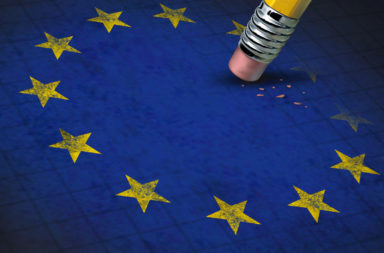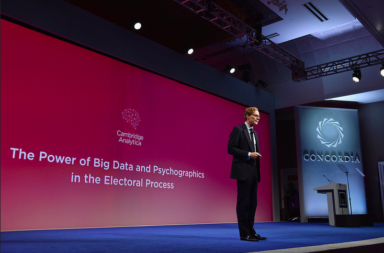At some stage next year UK voters will be given the chance to make a very big decision, with far reaching consequences for the country and perhaps the European Union. There will be a referendum on EU membership and according to the UK Prime Minister David Cameron, there will be no going back once a decision has been made.
With the recent election of Jeremy Corbyn as Labour leader, against all the odds, a challenge to the established positions on EU membership could be imminent.
During this year’s general election campaign the choice was clear, with the opposition Labour party not offering a referendum and arguing that change should be achieved from within the EU, while David Cameron made much of his promise to give the country the opportunity to decide. He says he wants the UK to stay in the EU, if he can achieve reforms. His Conservative party is divided over membership, with a hard core of Conservative members of parliament deeply suspicious about the closer integration instincts of EU federalists.
For many years the Labour party has been seen as broadly pro-EU but before the three consecutive election victories, with Tony Blair as leader, there was a left-wing element of the party which was distinctly anti-EU. This attitude goes right back to the 1975 referendum when senior party figures at the time, such as Tony Benn and Michael Foot, were against membership. The Conservatives were mainly in favor at that time, and the UK actually joined the EU, or EEC as it then was, in 1973 under a Conservative government led by Edward Heath.
Corbyn comes from the left – some would say hard left, if these terms still mean anything – of the party, and certainly belongs to the group who never embraced New Labour, Tony Blair or his beliefs. He is known to be skeptical about the EU, and was particularly critical about the austerity policies it has forced Greece to accept, but made more positive noises during the leadership election. Now that he has been elected leader, will he have the courage of his convictions and campaign for a No vote in the referendum?
As a confirmed rebel, with a history of defying the party leadership over many years, it would be unusual for him to abandon a principle for the sake of keeping everyone happy. Perhaps leadership is bound to change his approach to some extent, particularly given the need to unite a party still in shock at his election and wondering how or whether to unite behind him. If, on the other hand, he feels empowered by the large number of new party members who joined to vote him in, he might have the confidence to campaign for the UK to leave the EU.
For some on the Labour left, recent events have confirmed their suspicions that the EU is what it in their view always was – an organization which seeks to impose free market policies and principles on its members. The hard bargaining with Greece over austerity measures and the privatization of key assets, in order to release additional funds to prevent the bankruptcy of the Greek state, confirmed their view that continued membership is likely to create conflict with real socialist policies.
Corbyn will face a fight if he wants to turn the Labour party around and actively campaign for a No vote. Most current Labour members of parliament are used to a consensus in the party, seeing the EU as a club the country should definitely belong to, despite accepting that there is a strong strand of public opinion which believes there should be limits to our level of participation. “Ever closer union”, as described in the Treaty of Rome, is unlikely to ever appeal to even the most enthusiastic Europhile in the UK.
Having the courage to pursue this policy could be the beginning of a revival for the party, something not really expected by the majority of its MPs (members of parliament) and by the majority of commentators. Received wisdom tells us that Labour lost the general election because it was not trusted on the economy. Whatever the rights and wrongs of this argument, what is not in doubt is that there is a large body of opinion in the country which instinctively distrusts the EU and feels that the UK does not naturally belong to it. Some of this is stoked by scare stories about Brussels bureaucrats interfering in various parts of daily life with silly regulations – most of which turn out to be press fabrications or at least exaggerations.
Whether it would be wise for Corbyn and the “new” (old) Labour party to hitch itself to the anti-EU wagon, characterized as it currently is by an almost obsessive focus on immigration and the perceived damage it is doing, is debatable. The challenge would be to carve out a coherent argument for life outside the EU and convincingly argue that a socialist government could co-operate with the EU on a whole range of important issues. And to do this without being lumped together with the narrow-minded, the fearful and the borderline racists.
To sell a harmonious divorce, with both sides agreeing to be adult about the whole thing, and not be associated with the more extreme Europhobe elements who almost seem to want shouting and tears, will be difficult. Conscious uncoupling, as it is now sometimes known, would be Corbyn’s first real policy offering, likely to be followed by an eventual manifesto package of spending, taxation, perhaps nationalization and other policies which not many commentators believe have a future. The same could have been said of Jeremy Corbyn’s leadership prospects a few months ago, so he may surprise us yet.




